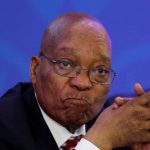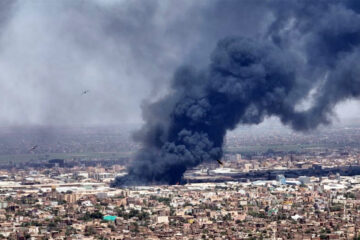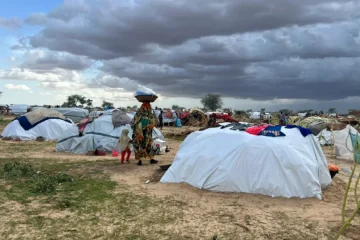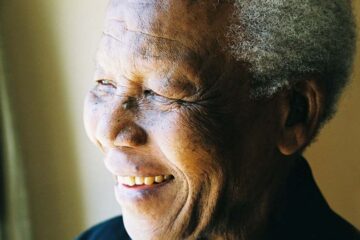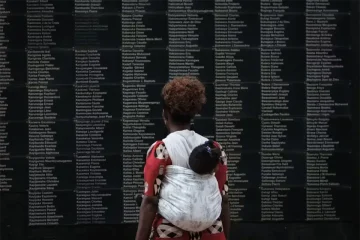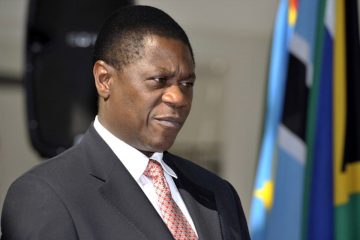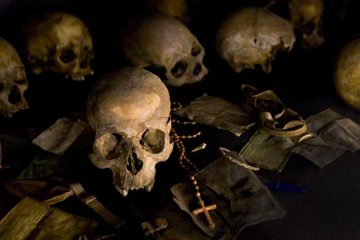THE spate of violence that’s engulfed South Africa shows that not all citizens have internalised constitutional democracy and the rule of law as the organising principle of the post-apartheid society.

Various interventions to institutionalise democracy were more focused on policy interventions and institution-building to safeguard it, but not on ensuring that it was embraced by the entirety of society, appreciating it as the basis of its evolution.
The violence started in KwaZulu-Natal following the imprisonment of the former president Jacob Zuma to serve a 15-month sentence for contempt of the order of the Constitutional Court.
This was initially hailed as a victory for the rule of law. But the subsequent rioting and mass looting of retail outlets shows it to have been a pyrrhic victory. In many ways, the edifice of the country’s constitutional democracy where the judicial authority is vested in the courts to institutionalise the rule of law is blown to smithereens.
This betrays the sacrifices of many to create an orderly society, where progress related to their selfless efforts had gathered pace over years. Just in a wink of an eye, all is going up in flames.
Beyond the pale in this rasping disobedience is the clamour of a war cry demanding Zuma’s release. Isn’t this treasonous, especially by those who use their influential standing in society to agitate for insurrections in the guise of protest? These concepts are not the same. The constitution states that citizens have the right to “assemble, demonstrate, picket and present petitions”, but “peacefully and unarmed”. This is what protest means.
Closely related to it is freedom of expression, which does not include “incitement of imminent violence or to cause harm”. Especially in the social media, reckless postings with incendiary intentions to stoke violence, looting, and destruction of property incite insurrection – an uprising against the state.
This is lawlessness, not protest.
The country is held at ransom by those cajoling the state into concessions intended to belie the essence of its foundation based on the supremacy of the constitution and the rule of law. This is largely by those who are demanding that the law should apply to the former president differently.
This absurdity should not in any way be entertained lest it mark the onset of the death of the rule of law.
An important principle in the organisation of the post-apartheid society is that of equality before the law and that nobody is above it.
In my view state power should be unleashed to clamp down on the violence. But this isn’t a sustainable way of making people understand that South Africa is a constitutional democracy. In many ways the rioting shows that many South Africans haven’t grasped what it was that the country decided to become as a post-apartheid society.
Dangers
The violence and looting has spawned a situation of national danger for President Cyril Ramaphosa. As the commander-in-chief of the defence force it was within his powers to declare a state of emergency. He did not. Instead, he opted to consult widely for the next course of action should the situation not subside.
This has come to define his presidential disposition. The state of emergency is the intervention of the last resort to maintain or regain control over public affairs. The constitution makes provision for it.
[When] the life of the nation is threatened by war, invasion, general insurrection, disorder, natural disaster or other public emergency”, the President can declare a state of emergency if such “is necessary to restore peace and order.
A core element of this is suspending civil rights. In other words, when democracy as the organising principle of society is imperilled, undemocratic means can be used to save it.
Which raises the question: is the president’s cautious approach defensible? Haven’t the incidences of violence, which by their nature are tantamount to insurrections, and therefore create disorder, a reason enough for the declaration of state of emergency?
Despite Ramaphosa’s tough talk, and the deployment of troops, thuggery continues unabated opportunistically preying on the credulity of the disadvantaged groups in society to make all the actions being taken look like a socioeconomic grievance.
But doesn’t this give us a hint of where the fault line may lie in institutionalising the country’s constitutional democracy?
Invoking state power to maintain order and stability is necessary. But it isn’t a sustainable way of making citizens internalise that South Africa is a constitutional democracy.
In many ways the insurrections suggest that many do not seem to have signed up to the concept that the rule of law would be the organising principle in democratic South Africa. Various interventions to institutionalise democracy were more focused on policy interventions and institution-building to safeguard it, but not on ensuring that it was embraced by the entirety of society.
Had this been the case, many would not have fallen into the trickery of not seeing the violence unleashed against democracy as the push back by the beneficiaries of corruption. In other words, for a democracy to endure, it must exist in the consciousness of society.
But how should South Africa go about this?
The construction of a democracy
This requires social institutions as subsystems that optimise co-existence to reassert their role in society, in the same way they animated patriotism in galvanising citizen participation in the making of South Africa’s constitution.
If the mayhem that besets the country is anything to go by, indications are that what became a social contract out of this exercise – where the powers and obligations of the state in relation to the rights and responsibilities of the citizens are defined – may not have been deliberately and systematically brought back into the people’s understanding of what it means to shape society’s consciousness.
In the hubris of the democratic breakthrough, social institutions as platforms to shape the nation’s character receded from this important role.
Much of this is glaring in the learning spaces, where education tends to focus more on forming the mind, and less on character formation. Many who are in the forefront of the mayhem that besets the country had interacted with education in their lives. Some are graduates. They are learned but lack civic character.
This calls for great introspection of the approach to education, lest the institutions of learning keep churning out miscreants that damage rather than build society.
It is time to introduce civic education at all levels of learning to cut across various disciplines. And it should emphasise citizenship as being about shared values of humanism, as enshrined in the constitution, where co-existence is about sustaining each other.
As a function of responsible citizenry, a good society makes democracy thrive. Its safety does not lie in the power of the state to exact obedience, but in the collective conscience of society. Social institutions are key to instilling this.
If this had existed, the Zuma moment which has gripped the country would have been averted as many would have known that South Africa is a constitutional democracy based on the rule of law.


